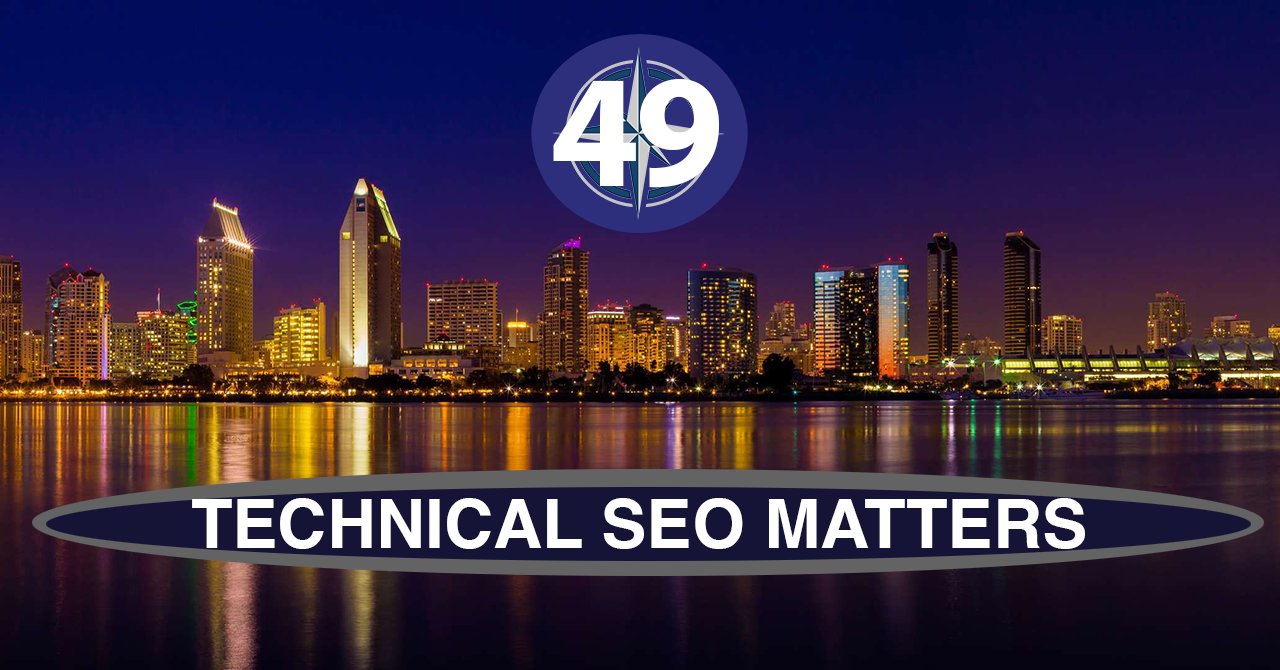Categories
Recent Posts
Archive
Tags
Social Links

Learn technical SEO essential and practice website applications to help improve your search results and make more meaningful connections in the results.
SEO is a complex and ever-changing field. Before you begin the process of optimizing your website for the search engines, it’s important to understand what SEO is and what it isn’t. Search engine optimization is an umbrella term that encompasses many different tasks, techniques and strategies. It involves a wide variety of various tasks including technical website optimization, server optimization, content SEO, linking SEO, keyword research and more.

Site Architecture, Internal Linking and Crawler Friendliness.
Site Architecture
Site architecture is the way your site is built. It includes internal linking and how pages are linked to each other, as well as crawler friendliness (the technical elements of the site that help search engines find it).
It’s important that the layout of your website reflects the purpose of the page and how users would navigate through it. For example, if you sell products then each product should have its own landing page with a clear call-to-action button; if you offer services then they should all be accessible from one homepage so visitors can easily find them; or if you publish articles then they should be structured logically so people can find content easily while staying on topic.
Website Speed and Performance
Website speed and performance are key to a great user experience. The faster your site loads, the more likely it is that users will stay on your site. The slower your site loads, the more likely it is that users will leave your site.
In order to keep SEO and user experience in mind while optimizing code, consider including these best practices:
- Use image compression tools like ImageOptim or TinyPNG to reduce file size without affecting quality (see this post on our blog for more details)
- Make sure all of your links point to valid URLs by using 301 redirects where necessary
- Avoid JavaScript libraries with known bugs such as jQuery UI 1.8
Domain Factors
Domain Factors:
- Domain Age – Older domains are often associated with higher site authority.
- Quality Backlinks – Backlinks that are editorially reviewed, from guests blogs, included in business profiles, and referenced in webinars can help your linking authority
- Bad Backlinks – Links from websites that are spammy or from not-so trusted websites can undermine your chances of ranking in top search results
- Domain Authority – A website’s domain authority is calculated based on its age, popularity and trustworthiness. This can help you determine whether or not a site is reliable.
- Domain Registration Date – The older a domain has been registered for, the more likely it is to be trusted by users due to its longevity and stability.
- Domain Extension (TLD) – Some TLDs have better SEO performance than others but this factor shouldn’t affect your decision too much because most TLDs will display properly on both search engines regardless of the extension used.
Schema Mark Up, Structured Data and Rich Snippets
Schema mark up and structured data are two ways to improve your search engine rankings. They help search engines crawl and understand your content better, which increases their ability to serve relevant results.
Rich snippets are a type of structured data that can be added directly into the code of your website. Rich snippets provide visual elements, such as images or reviews, in the SERP listing that make it easier for users to quickly scan and compare multiple results. Adding rich snippets can also increase click-through rates on both desktop and mobile devices.
XML sitemaps and robots.txt file.
A robots.txt file is a text file that contains instructions for web crawlers. It should be placed in the root directory of your website, and the name should be robots.txt (not “robots-txt”). The content of this file is usually a collection of directives telling search engines how to crawl your website and what parts not to crawl (e.g., files that could be temporarily unavailable or may be private).
An example:
User-agent: Googlebot
Disallow: /offline/*
SEO involves a wide variety of various tasks including technical website optimization, server optimization, content SEO, linking SEO, keyword research and more.
SEO involves a wide variety of various tasks including technical website optimization, server optimization, content SEO and more.
SEO is not just about keywords. It’s about making your website more accessible to search engines so that they can find it and show it to users who are searching for that kind of content on the web.
Conclusion
We hope that you’ve found this article on technical SEO for webpage search ranking helpful, and are encouraged to get started on your own SEO initiatives. Remember that there is no one-size-fits-all solution, so it’s important to experiment with different approaches until you find what works best for your site. We wish you the best of luck!






One response to “Technical SEO—What Matters for Meaningful Search Results”
Hi, this is a comment.
To get started with moderating, editing, and deleting comments, please visit the Comments screen in the dashboard.
Commenter avatars come from Gravatar.